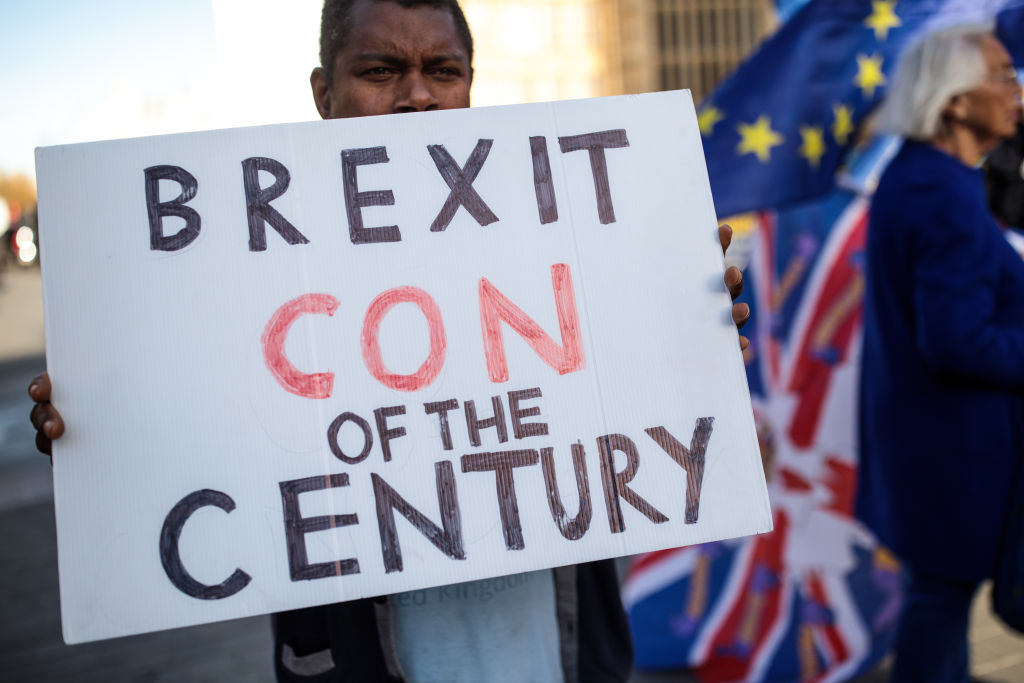There will be chaos at the ports. Only the occasional root vegetable will be sold in the supermarkets. The factories and farms will run out of workers, and the planes will all be grounded on the runway. We have yet to get an official warning about how the black death will ravage the land, or how cannibalism will make a comeback. But it may just be a matter of time. As we head into the New Year, and as our departure from the European Union, quite possibly without any form of deal, draws closer, the warnings will become ever more darkly apocalyptic.
As 2019 starts, we still don’t have much idea what will happen with Brexit. We may grudgingly accept Theresa’s May’s deal. We might have a second referendum, possibly a third, a general election, leave with no deal, or just forget about the whole thing and pretend it never happened. Amidst all the chaos, however, one prediction is easy to make: when Brexit finally happens, it will be a massive damp squib.
So what are the main things that won’t happen? Here are five to be starting with.
First, the ports stay open and the trucks will still roll through them. The EU will grant temporary waivers to allow the movement of goods, and on this side of the border we will lower standards and checks until permanent systems have been put in place and the logistics operators have adjusted. The very worst that will happen is that some deliveries of cut flowers from Holland will be delayed, and a few carnations will have to be chucked. The world will keep turning despite that.
Next, the medicines will keep flowing and the hospitals will remain open. It is likely a deal will be done, or an exemption granted, to keep essential supplies moving. Drugs don’t take up a lot of space so there won’t be any significant shortages.
Thirdly, the planes will still fly. On the easyJet website I can book a flight to Berlin for the end of April for less than twenty-five quid. If air traffic systems are going to freeze up, it seems odd, to put it mildly, that bookings are still being accepted. There will probably be lots of chaos at the airports over the spring and summer. But it will simply be the usual delays. Brexit won’t make them any better or worse.
Four, the City will have a good year. Equivalence rules which allow regulations to be recognised across major capital markets and a few branch offices quietly opened in Frankfurt and Paris mean that the banks and fund managers will sail on much as before. In the capital markets, the customers are looking for expertise. Once they have found that – and the City has more of it than its rivals – they will figure out how to comply with the rules.
Finally, the fruit will still be picked, and the factories will keep running. Over time, the UK might decide it makes more sense to import more apples from Poland – the third largest producer in the world after China and the United States – rather than grow them here and get Polish people over to pick them. But that will take a while. Amidst some heated debate, we will decide for the first few years after Brexit to let lots of workers into the country. And the fact that wages are rising faster here than anywhere else in Europe means they will keep coming.
Overall, the main thing we will discover over next spring and summer is this. We might well ‘crash out’ of the EU. And yet, in truth, most of us, and most companies, won’t notice much of a change from one day to the next. In fact, it is important to remember that the EU is actually a slightly ineffective bureaucracy, and not even an especially large one, and like most bureaucracies all it really does is push bits of paper from one side of the desk to the other. It has been great at bigging itself up, and so have some of its more fevered cheerleaders. But like most governments, it doesn’t do very much, and most of what it does do is actively harmful. On leaving, we will discover that it doesn’t make much difference to anything whether we are in or out – and we can all move on to arguing furiously about something else.






Comments